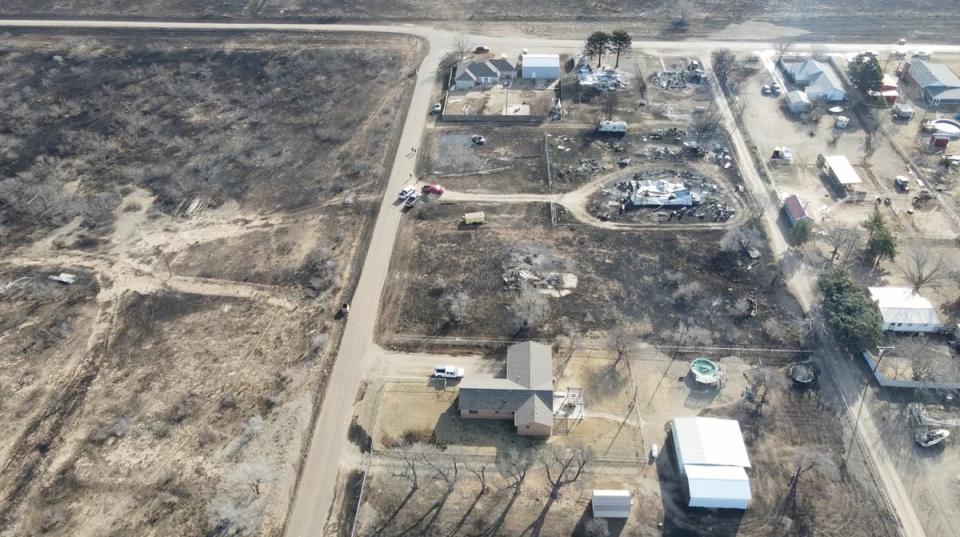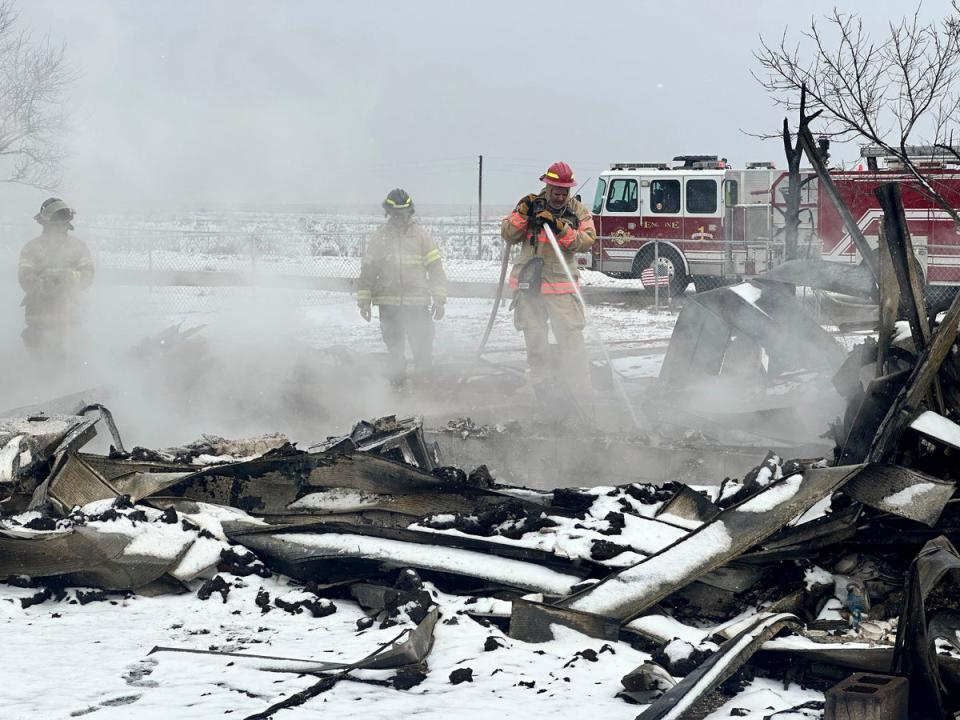Woman killed as Smokehouse Creek fire destroys 1 million acres of Texas
The wildfires that have scorched the Texas Panhandle and burned more than 1.2 million acres have killed at least one person, say authorities.
Joyce Blankenship, 83, was found dead in her Stinnett, Texas home on Wednesday as wildfires ravaged the region. She was a beloved mother, grandmother and former substitute teacher, say her relatives.
More than a dozen other homes in her town were destroyed by the fires, which now include the largest blaze in state history: the Smokehouse Creek fire, burning 1m acres alone in the Texas Panhandle as of Thursday.

Blankenship’s grandson, Lee Quesada, told the Associated Press that local deputies told his uncle they had found her remains in her burned home on Wednesday.
Mr Quesada told the AP his grandmother liked to tell him funny stories “about her more ornery days.”
“Just talking to her was a joy,” he said. “Joy” was a nickname of hers, he told the outlet.
He also told CNN about her past as a mother and teacher.
“She used to be a substitute teacher in the area before she became a housewife while Jimmy worked at the local Phillips refinery,” Mr Quesada said. “She will be missed by all.”
Blankenship’s now-scorched town was covered with a fresh blanket of snow on Thursday morning. Nearby towns, such as Fritch, face similar devastation as the fires reduce dozens of homes to rubble.

Blankenship’s other grandson, Nathan Blankenship, also told CNN she had been his “biggest advocate.”
“She has been my biggest proponent, sticking up for me,” Mr Blankenship told the outlet.
Five fires are burning in the Texas Panhandle as of Thursday.
In Potter County, the spread of the Windy Deuce fire caused the Pantex Plant — America’s main facility for assembling and disassembling nuclear weapons — to briefly close operations on Tuesday night. The plant resumed normal operations Wednesday morning.
That same fire grew on Wednesday and is now scorching 142,000 acres at 50 per cent containment.
Dry and windy conditions amid unseasonably warm temperatures fuelled these fires. Drought conditions are not contributing — much of the panhandle has no drought, with portions of the western panhandle considered “abnormally dry” or in “moderate drought.”

 Yahoo News
Yahoo News 
